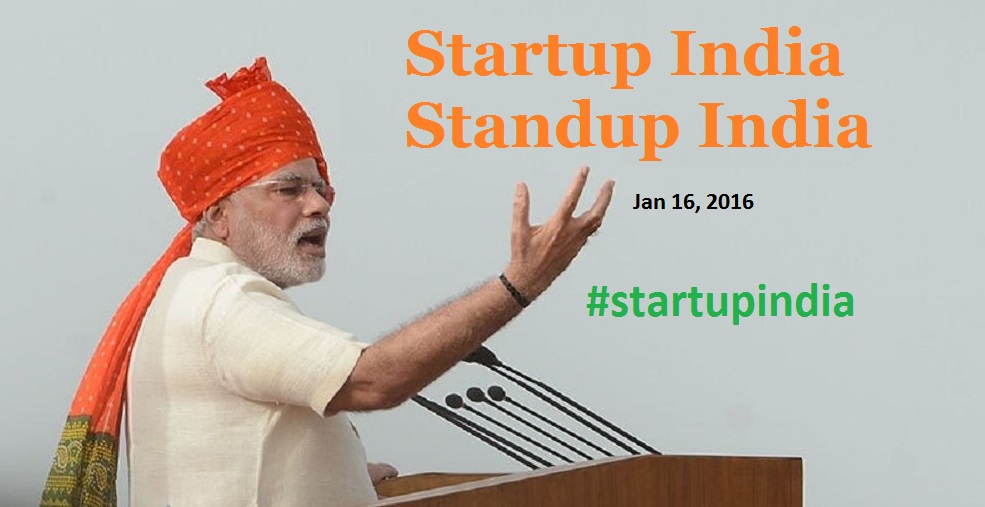A PHP Error was encountered
Severity: 8192
Message: Creation of dynamic property CI_URI::$config is deprecated
Filename: core/URI.php
Line Number: 101
Backtrace:
File: /home/y1pwoa10zant/public_html/businesswindo.com/info-cafe/index.php
A PHP Error was encountered
Severity: 8192
Message: Creation of dynamic property CI_Router::$uri is deprecated
Filename: core/Router.php
Line Number: 127
Backtrace:
File: /home/y1pwoa10zant/public_html/businesswindo.com/info-cafe/index.php
A PHP Error was encountered
Severity: 8192
Message: Creation of dynamic property Article::$benchmark is deprecated
Filename: core/Controller.php
Line Number: 75
Backtrace:
File: /home/y1pwoa10zant/public_html/businesswindo.com/info-cafe/index.php
A PHP Error was encountered
Severity: 8192
Message: Creation of dynamic property Article::$hooks is deprecated
Filename: core/Controller.php
Line Number: 75
Backtrace:
File: /home/y1pwoa10zant/public_html/businesswindo.com/info-cafe/index.php
A PHP Error was encountered
Severity: 8192
Message: Creation of dynamic property Article::$config is deprecated
Filename: core/Controller.php
Line Number: 75
Backtrace:
File: /home/y1pwoa10zant/public_html/businesswindo.com/info-cafe/index.php
A PHP Error was encountered
Severity: 8192
Message: Creation of dynamic property Article::$log is deprecated
Filename: core/Controller.php
Line Number: 75
Backtrace:
File: /home/y1pwoa10zant/public_html/businesswindo.com/info-cafe/index.php
A PHP Error was encountered
Severity: 8192
Message: Creation of dynamic property Article::$utf8 is deprecated
Filename: core/Controller.php
Line Number: 75
Backtrace:
File: /home/y1pwoa10zant/public_html/businesswindo.com/info-cafe/index.php
A PHP Error was encountered
Severity: 8192
Message: Creation of dynamic property Article::$uri is deprecated
Filename: core/Controller.php
Line Number: 75
Backtrace:
File: /home/y1pwoa10zant/public_html/businesswindo.com/info-cafe/index.php
A PHP Error was encountered
Severity: 8192
Message: Creation of dynamic property Article::$exceptions is deprecated
Filename: core/Controller.php
Line Number: 75
Backtrace:
File: /home/y1pwoa10zant/public_html/businesswindo.com/info-cafe/index.php
A PHP Error was encountered
Severity: 8192
Message: Creation of dynamic property Article::$router is deprecated
Filename: core/Controller.php
Line Number: 75
Backtrace:
File: /home/y1pwoa10zant/public_html/businesswindo.com/info-cafe/index.php
A PHP Error was encountered
Severity: 8192
Message: Creation of dynamic property Article::$output is deprecated
Filename: core/Controller.php
Line Number: 75
Backtrace:
File: /home/y1pwoa10zant/public_html/businesswindo.com/info-cafe/index.php
A PHP Error was encountered
Severity: 8192
Message: Creation of dynamic property Article::$security is deprecated
Filename: core/Controller.php
Line Number: 75
Backtrace:
File: /home/y1pwoa10zant/public_html/businesswindo.com/info-cafe/index.php
A PHP Error was encountered
Severity: 8192
Message: Creation of dynamic property Article::$input is deprecated
Filename: core/Controller.php
Line Number: 75
Backtrace:
File: /home/y1pwoa10zant/public_html/businesswindo.com/info-cafe/index.php
A PHP Error was encountered
Severity: 8192
Message: Creation of dynamic property Article::$lang is deprecated
Filename: core/Controller.php
Line Number: 75
Backtrace:
File: /home/y1pwoa10zant/public_html/businesswindo.com/info-cafe/index.php
A PHP Error was encountered
Severity: 8192
Message: Creation of dynamic property Article::$load is deprecated
Filename: core/Controller.php
Line Number: 78
Backtrace:
File: /home/y1pwoa10zant/public_html/businesswindo.com/info-cafe/index.php
A PHP Error was encountered
Severity: 8192
Message: Creation of dynamic property Article::$db is deprecated
Filename: core/Loader.php
Line Number: 390
Backtrace:
File: /home/y1pwoa10zant/public_html/businesswindo.com/info-cafe/index.php
A PHP Error was encountered
Severity: 8192
Message: Creation of dynamic property CI_DB_mysqli_driver::$failover is deprecated
Filename: database/DB_driver.php
Line Number: 371
Backtrace:
File: /home/y1pwoa10zant/public_html/businesswindo.com/info-cafe/index.php
A PHP Error was encountered
Severity: 8192
Message: Return type of CI_Session_files_driver::open($save_path, $name) should either be compatible with SessionHandlerInterface::open(string $path, string $name): bool, or the #[\ReturnTypeWillChange] attribute should be used to temporarily suppress the notice
Filename: drivers/Session_files_driver.php
Line Number: 132
Backtrace:
File: /home/y1pwoa10zant/public_html/businesswindo.com/info-cafe/index.php
A PHP Error was encountered
Severity: 8192
Message: Return type of CI_Session_files_driver::close() should either be compatible with SessionHandlerInterface::close(): bool, or the #[\ReturnTypeWillChange] attribute should be used to temporarily suppress the notice
Filename: drivers/Session_files_driver.php
Line Number: 290
Backtrace:
File: /home/y1pwoa10zant/public_html/businesswindo.com/info-cafe/index.php
A PHP Error was encountered
Severity: 8192
Message: Return type of CI_Session_files_driver::read($session_id) should either be compatible with SessionHandlerInterface::read(string $id): string|false, or the #[\ReturnTypeWillChange] attribute should be used to temporarily suppress the notice
Filename: drivers/Session_files_driver.php
Line Number: 164
Backtrace:
File: /home/y1pwoa10zant/public_html/businesswindo.com/info-cafe/index.php
A PHP Error was encountered
Severity: 8192
Message: Return type of CI_Session_files_driver::write($session_id, $session_data) should either be compatible with SessionHandlerInterface::write(string $id, string $data): bool, or the #[\ReturnTypeWillChange] attribute should be used to temporarily suppress the notice
Filename: drivers/Session_files_driver.php
Line Number: 233
Backtrace:
File: /home/y1pwoa10zant/public_html/businesswindo.com/info-cafe/index.php
A PHP Error was encountered
Severity: 8192
Message: Return type of CI_Session_files_driver::destroy($session_id) should either be compatible with SessionHandlerInterface::destroy(string $id): bool, or the #[\ReturnTypeWillChange] attribute should be used to temporarily suppress the notice
Filename: drivers/Session_files_driver.php
Line Number: 313
Backtrace:
File: /home/y1pwoa10zant/public_html/businesswindo.com/info-cafe/index.php
A PHP Error was encountered
Severity: 8192
Message: Return type of CI_Session_files_driver::gc($maxlifetime) should either be compatible with SessionHandlerInterface::gc(int $max_lifetime): int|false, or the #[\ReturnTypeWillChange] attribute should be used to temporarily suppress the notice
Filename: drivers/Session_files_driver.php
Line Number: 354
Backtrace:
File: /home/y1pwoa10zant/public_html/businesswindo.com/info-cafe/index.php
A PHP Error was encountered
Severity: Warning
Message: ini_set(): Session ini settings cannot be changed after headers have already been sent
Filename: Session/Session.php
Line Number: 337
Backtrace:
File: /home/y1pwoa10zant/public_html/businesswindo.com/info-cafe/index.php
A PHP Error was encountered
Severity: Warning
Message: session_set_cookie_params(): Session cookie parameters cannot be changed after headers have already been sent
Filename: Session/Session.php
Line Number: 344
Backtrace:
File: /home/y1pwoa10zant/public_html/businesswindo.com/info-cafe/index.php
A PHP Error was encountered
Severity: Warning
Message: ini_set(): Session ini settings cannot be changed after headers have already been sent
Filename: Session/Session.php
Line Number: 359
Backtrace:
File: /home/y1pwoa10zant/public_html/businesswindo.com/info-cafe/index.php
A PHP Error was encountered
Severity: Warning
Message: ini_set(): Session ini settings cannot be changed after headers have already been sent
Filename: Session/Session.php
Line Number: 369
Backtrace:
File: /home/y1pwoa10zant/public_html/businesswindo.com/info-cafe/index.php
A PHP Error was encountered
Severity: Warning
Message: ini_set(): Session ini settings cannot be changed after headers have already been sent
Filename: Session/Session.php
Line Number: 370
Backtrace:
File: /home/y1pwoa10zant/public_html/businesswindo.com/info-cafe/index.php
A PHP Error was encountered
Severity: Warning
Message: ini_set(): Session ini settings cannot be changed after headers have already been sent
Filename: Session/Session.php
Line Number: 371
Backtrace:
File: /home/y1pwoa10zant/public_html/businesswindo.com/info-cafe/index.php
A PHP Error was encountered
Severity: Warning
Message: ini_set(): Session ini settings cannot be changed after headers have already been sent
Filename: Session/Session.php
Line Number: 372
Backtrace:
File: /home/y1pwoa10zant/public_html/businesswindo.com/info-cafe/index.php
A PHP Error was encountered
Severity: Warning
Message: ini_set(): Session ini settings cannot be changed after headers have already been sent
Filename: Session/Session.php
Line Number: 430
Backtrace:
File: /home/y1pwoa10zant/public_html/businesswindo.com/info-cafe/index.php
A PHP Error was encountered
Severity: Warning
Message: session_set_save_handler(): Session save handler cannot be changed after headers have already been sent
Filename: Session/Session.php
Line Number: 110
Backtrace:
File: /home/y1pwoa10zant/public_html/businesswindo.com/info-cafe/index.php
A PHP Error was encountered
Severity: Warning
Message: session_regenerate_id(): Session ID cannot be regenerated when there is no active session
Filename: Session/Session.php
Line Number: 185
Backtrace:
File: /home/y1pwoa10zant/public_html/businesswindo.com/info-cafe/index.php
A PHP Error was encountered
Severity: Warning
Message: session_start(): Session cannot be started after headers have already been sent
Filename: Session/Session.php
Line Number: 186
Backtrace:
File: /home/y1pwoa10zant/public_html/businesswindo.com/info-cafe/index.php
A PHP Error was encountered
Severity: 8192
Message: Creation of dynamic property Article::$session is deprecated
Filename: core/Loader.php
Line Number: 1290
Backtrace:
File: /home/y1pwoa10zant/public_html/businesswindo.com/info-cafe/index.php
A PHP Error was encountered
Severity: 8192
Message: Creation of dynamic property CI_Loader::$benchmark is deprecated
Filename: core/Loader.php
Line Number: 925
Backtrace:
File: /home/y1pwoa10zant/public_html/businesswindo.com/info-cafe/application/controllers/Article.php
File: /home/y1pwoa10zant/public_html/businesswindo.com/info-cafe/index.php
A PHP Error was encountered
Severity: 8192
Message: Creation of dynamic property CI_Loader::$hooks is deprecated
Filename: core/Loader.php
Line Number: 925
Backtrace:
File: /home/y1pwoa10zant/public_html/businesswindo.com/info-cafe/application/controllers/Article.php
File: /home/y1pwoa10zant/public_html/businesswindo.com/info-cafe/index.php
A PHP Error was encountered
Severity: 8192
Message: Creation of dynamic property CI_Loader::$config is deprecated
Filename: core/Loader.php
Line Number: 925
Backtrace:
File: /home/y1pwoa10zant/public_html/businesswindo.com/info-cafe/application/controllers/Article.php
File: /home/y1pwoa10zant/public_html/businesswindo.com/info-cafe/index.php
A PHP Error was encountered
Severity: 8192
Message: Creation of dynamic property CI_Loader::$log is deprecated
Filename: core/Loader.php
Line Number: 925
Backtrace:
File: /home/y1pwoa10zant/public_html/businesswindo.com/info-cafe/application/controllers/Article.php
File: /home/y1pwoa10zant/public_html/businesswindo.com/info-cafe/index.php
A PHP Error was encountered
Severity: 8192
Message: Creation of dynamic property CI_Loader::$utf8 is deprecated
Filename: core/Loader.php
Line Number: 925
Backtrace:
File: /home/y1pwoa10zant/public_html/businesswindo.com/info-cafe/application/controllers/Article.php
File: /home/y1pwoa10zant/public_html/businesswindo.com/info-cafe/index.php
A PHP Error was encountered
Severity: 8192
Message: Creation of dynamic property CI_Loader::$uri is deprecated
Filename: core/Loader.php
Line Number: 925
Backtrace:
File: /home/y1pwoa10zant/public_html/businesswindo.com/info-cafe/application/controllers/Article.php
File: /home/y1pwoa10zant/public_html/businesswindo.com/info-cafe/index.php
A PHP Error was encountered
Severity: 8192
Message: Creation of dynamic property CI_Loader::$exceptions is deprecated
Filename: core/Loader.php
Line Number: 925
Backtrace:
File: /home/y1pwoa10zant/public_html/businesswindo.com/info-cafe/application/controllers/Article.php
File: /home/y1pwoa10zant/public_html/businesswindo.com/info-cafe/index.php
A PHP Error was encountered
Severity: 8192
Message: Creation of dynamic property CI_Loader::$router is deprecated
Filename: core/Loader.php
Line Number: 925
Backtrace:
File: /home/y1pwoa10zant/public_html/businesswindo.com/info-cafe/application/controllers/Article.php
File: /home/y1pwoa10zant/public_html/businesswindo.com/info-cafe/index.php
A PHP Error was encountered
Severity: 8192
Message: Creation of dynamic property CI_Loader::$output is deprecated
Filename: core/Loader.php
Line Number: 925
Backtrace:
File: /home/y1pwoa10zant/public_html/businesswindo.com/info-cafe/application/controllers/Article.php
File: /home/y1pwoa10zant/public_html/businesswindo.com/info-cafe/index.php
A PHP Error was encountered
Severity: 8192
Message: Creation of dynamic property CI_Loader::$security is deprecated
Filename: core/Loader.php
Line Number: 925
Backtrace:
File: /home/y1pwoa10zant/public_html/businesswindo.com/info-cafe/application/controllers/Article.php
File: /home/y1pwoa10zant/public_html/businesswindo.com/info-cafe/index.php
A PHP Error was encountered
Severity: 8192
Message: Creation of dynamic property CI_Loader::$input is deprecated
Filename: core/Loader.php
Line Number: 925
Backtrace:
File: /home/y1pwoa10zant/public_html/businesswindo.com/info-cafe/application/controllers/Article.php
File: /home/y1pwoa10zant/public_html/businesswindo.com/info-cafe/index.php
A PHP Error was encountered
Severity: 8192
Message: Creation of dynamic property CI_Loader::$lang is deprecated
Filename: core/Loader.php
Line Number: 925
Backtrace:
File: /home/y1pwoa10zant/public_html/businesswindo.com/info-cafe/application/controllers/Article.php
File: /home/y1pwoa10zant/public_html/businesswindo.com/info-cafe/index.php
A PHP Error was encountered
Severity: 8192
Message: Creation of dynamic property CI_Loader::$load is deprecated
Filename: core/Loader.php
Line Number: 925
Backtrace:
File: /home/y1pwoa10zant/public_html/businesswindo.com/info-cafe/application/controllers/Article.php
File: /home/y1pwoa10zant/public_html/businesswindo.com/info-cafe/index.php
A PHP Error was encountered
Severity: 8192
Message: Creation of dynamic property CI_Loader::$db is deprecated
Filename: core/Loader.php
Line Number: 925
Backtrace:
File: /home/y1pwoa10zant/public_html/businesswindo.com/info-cafe/application/controllers/Article.php
File: /home/y1pwoa10zant/public_html/businesswindo.com/info-cafe/index.php
A PHP Error was encountered
Severity: 8192
Message: Creation of dynamic property CI_Loader::$session is deprecated
Filename: core/Loader.php
Line Number: 925
Backtrace:
File: /home/y1pwoa10zant/public_html/businesswindo.com/info-cafe/application/controllers/Article.php
File: /home/y1pwoa10zant/public_html/businesswindo.com/info-cafe/index.php
Startup India – All the Necessary Details
Startup India – All the Necessary Details
Posted on: 2017-04-26 06:01:34
The Startup India Stand up India event was organized by the Indian Government under the aegis of Narendra Modi , the Prime Minister of India, on 16th January 2016. In a way this event encapsulated all the benefits for starting an ecosystem of startups in India. Such an event had a significant amount of importance considering how it was the first time that the national government and the startup community in India were coming into contact with each other and interacting on key issues. The very programme – Startup India – can be deemed a flagship effort on part of the central government.
What does this programme intend to do?
The Startup India plan is supposed to create a strong ecosystem where innovation can be nurtured and more startups can be had. This is expected to lead to a level of economic growth that can be sustained over the long time, and also lead to employment on a huge scale. The national government – through this programme – aims to empower these budding business units in such a way that they can chart their own course of innovation and grow in the way that they wish to. In order to satisfy the aim behind this programme an Action Plan has been created by the Government of India.
Action Plan
This Action Plan deals with each and every aspect of the startup ecosystem in India . By using this plan the government is hopeful that it will speed up the startup movement in the country. At present such companies are only limited to the technology and digital sector but the national administration wants it to spread to other sectors as well such as agriculture, healthcare, manufacturing, education and social sector. From a geographical point of view these are restricted to the tier 1 cities but the government is hopeful that the semi-urban and rural areas will come in its fold as well.
Compartments of the action plan
The action plan has been divided into several areas. Some of them may be mentioned as follows – simplification and handholding, industry-academic partnership and incubation, and funding incentives and support. A lot of entrepreneurs in India may be thinking if their venture would be deemed worthy of assistance under the new project or not. The Department of Industrial Policy and Promotion (DIPP) of the Indian Government has provided the definition of startups and thus made it clear as to which companies will be considered eligible for assistance under the programme.
The necessary criteria
The said company must be incorporated and registered in India. It should not be older than five years. Its annual turnover should have never been more than INR 25 crore in any of the years that it has been functional. The company should be focusing on innovating, developing, deploying, and commercializing new products, services, and processes that are technology driven in nature. It is also important that the company applying for the benefit has not been formed by reconstructing or splitting up a company that existed before. If a company has been older than 5 years or if it has ever earned more than INR 25 crore a year it will not be regarded as a startup any more.

